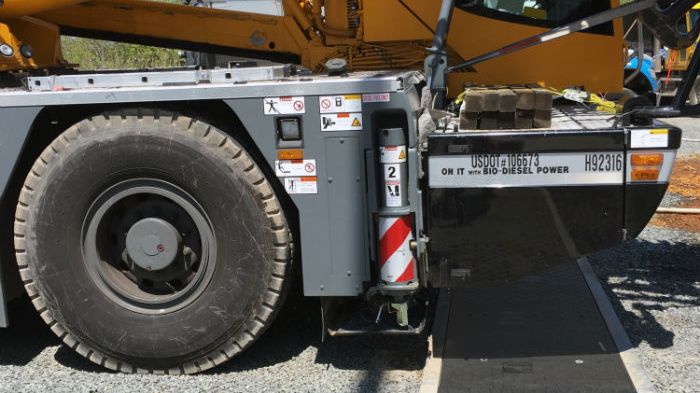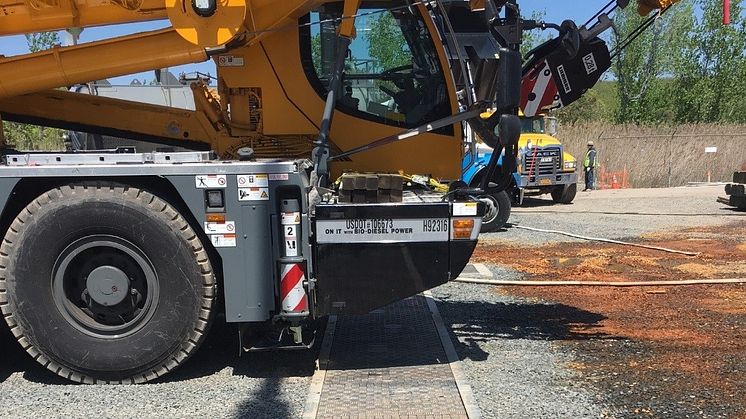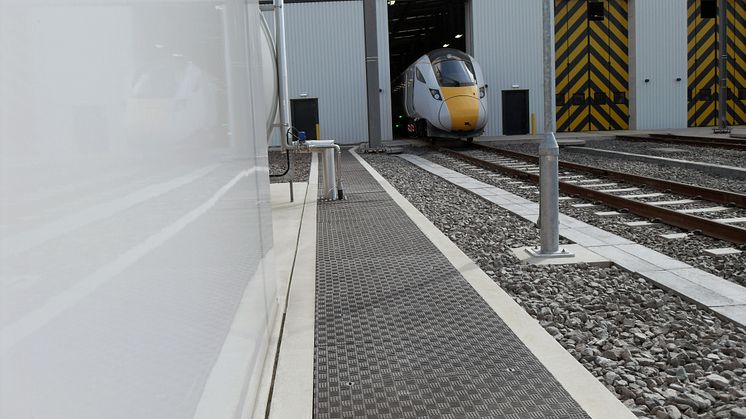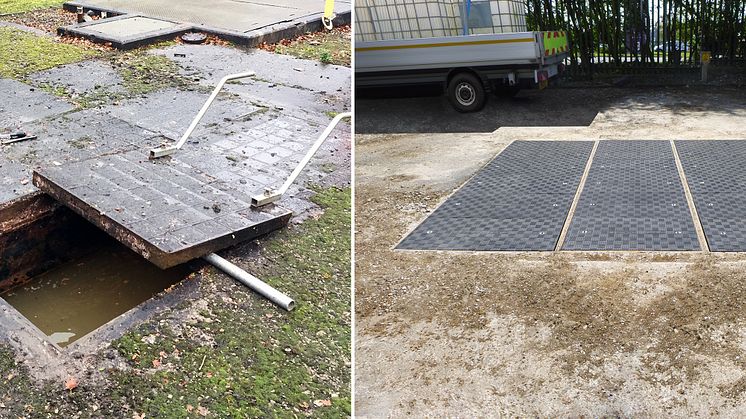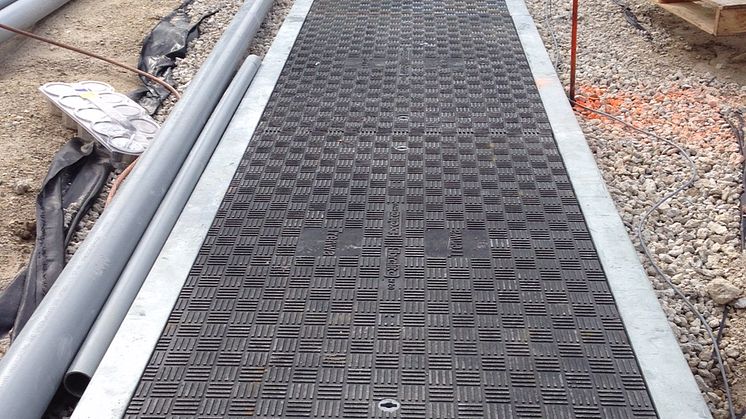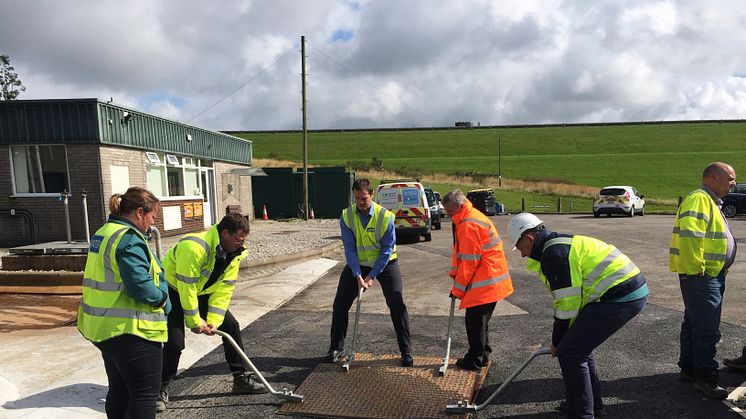
Press release -
Composites Set a New Standard for Manual Handling
Over the last two years, a staggering 4.5 million working days[1]were lost to workplace injuries. A fifth of these were caused by manual handling[2]. One common activity which contributes to this, posing a high risk of manual handling injuries is the removal and replacement of heavy concrete and metal manhole and trench covers. Their position and weight makes them an ideal culprit for back and finger injuries which can be compounded if the covers corrode or crumble.
Composites: A Future Material
Composite materials are revolutionising an ever-broadening array of industries including aerospace, infrastructure, construction and now health and safety. A number of companies are using composites to create products that eliminate manual handling issues in the access cover industry.

Heavy metal trench cover requiring a crane to remove
Composites effectively shed weight whilst retaining mechanical properties. This means that a composite cover with the same load rating as a concrete or metal cover will weigh far less. A company called Fibrelite are spearheading this change, with their covers weighing in at approximately one-third of traditional alternatives, giving them the best strength to weight ratio in the industry. Fibrelite is in fact the only company to successfully engineer and manufacture composite covers with load ratings over 40 tonnes (D400). In 2016 they extended their range all the way up to 90 tonne (F900) load ratings for airports and ports.
David Holmes, Fibrelite’s Technical Director explains “one or two people can move any Fibrelite cover quickly and easily without risk of back injury or crushed fingers, at any load rating.”
Fibrelite ‘Eliminate Access Cover Manual Handling Risks’
Whilst the lightweight and corrosion-free properties of composites go a long way towards decreasing manual handling injuries, Fibrelite wanted to eliminate them altogether. They identified stooping as an additional cause of injury. To solve this, they created an ergonomically designed lifting handle, allowing users to safely remove and replace the covers keeping the load close to the waist, avoiding stooping or bending their backs. This allows users to adhere to the advised lifting technique from both the HSE[3] and NHS[4].

Lightweight Fibrelite covers allowing safe fast manual removal
Fibrelite also considered the safety of people and vehicles passing over the covers. Unlike metal and concrete covers that can become hazardous when wet or worn, Fibrelite covers have been engineered to provide a safe walking and driving surface, tested to be equivalent to modern high-grade road surfaces[5].
According to Ian Thompson Fibrelite’s Managing Director, there has been “a dramatic growth in the number of industries reducing their health and safety risks by using composites, both at new build facilities where our covers are specified from the outset and at existing facilities modernising their previously installed covers”.
For more information visit www.fibrelite.com
[1] ‘Working days lost’ http://www.hse.gov.uk/statistics/dayslost.htm
[2] ‘Work place industry-all injuries’ http://www.hse.gov.uk/statistics/causinj/
[3] "Manual Handling" http://www.hse.gov.uk/msd/manualhandling.htm
[4] "Safe Lifting Tips - Live Well - NHS Choices" https://www.nhs.uk/livewell/workplacehealth/pages/safe-lifting-tips.aspx
[5] Get-A-Grip http://fibrelite.fivetalents.co.uk/wp-content/uploads/2016/12/Fibrelite-Anti-skid-Anti-slip.pdf
Topics
Categories
Regions
OPW is a global leader in fluid handling, management, monitoring and control solutions for the safe and efficient handling of fluids from the refinery to the commercial and retail points of consumption, including loading systems, rail and transport tank truck equipment, tank gauging, fuel management systems, valves, fittings, underground and above ground storage tank equipment, spill containers, overfill prevention devices, secondary containment sumps and flexible piping, commercial and retail fueling dispensers and electronic POS systems, swivels, breakaways, and nozzles for virtually all fuel types, including LPG, Hydrogen and CNG. OPW also designs and manufactures touch-free and friction car wash systems. OPW has 3,850+ employees with manufacturing operations in North America, Europe, Brazil, China and India and sales around the world. OPW is part of the Fluids segment of Dover (NYSE: DOV).


